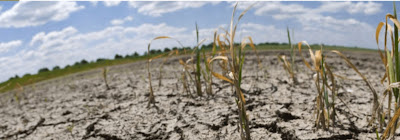Facing the challenge of food insecurity
For a significant percentage of families in El Salvador, putting food on the table continues to get more difficult. Prices for food climbed after the COVID-19 pandemic and have remained high, and climate change and natural disasters put at risk the basic foodstuffs which can be grown locally.
Five UN agencies just released their 2023 Regional Overview of Food Security and Nutrition in Latin America and the Caribbean. The UN report describes ranges of food insecurity countries may face:
The prevalence of moderate or severe food insecurity, based on the Food Insecurity Experience Scale (FIES), is an estimate of the proportion of the population facing moderate or severe constraints on their ability to obtain sufficient food over the course of a year. People face moderate food insecurity when they are uncertain of their ability to obtain food and have been forced to reduce, at times over the year, the quality and/ or quantity of food they consume due to lack of money or other resources. Severe food insecurity means that individuals have likely run out of food, experienced hunger and, at the most extreme, have gone for days without eating, putting their health and well-being at serious risk.
For El Salvador, the UN found that the percentage of Salvadorans with moderate to severe food insecurity increased in the most recent three years from 2020-2022 in comparison to the the period 2014-2016. More than 48% of Salvadoran families fall in this category, while more than 16% face severe food insecurity.
The reasons for food insecurity in El Salvador are varied, but center on poverty and crop losses in the basic foodstuffs of corn and beans as a result of climate change and weather patterns.
According to the most recent Salvadoran government survey, the percentage of the population living in poverty in 2022 was 26.6%, while the percentage living in extreme poverty was 8.6%. Poverty was at the highest level in the past 4 years. Meanwhile, corn and bean prices in 2022-2023 were considerably higher than the average price over the preceding 5 years.
Thus one part of food security is simply rising costs to feed a family while incomes are not keeping pace. The United Nations Office of Coordination of Humanitarian Affairs noted in April that 1.1 million Salvadorans, or one sixth of the population, have humanitarian needs, and highlighted food insecurity exacerbated by the country's need to import food at the mercy of world commodity prices.
Agriculture experts warn that the effects of climate change will have a steady negative impact on the harvests of basic foodstuffs like corn and beans for El Salvador and other countries in the dry corridor.
Compounding these factors in the very short term, a weather phenomenon known as El Niño may have profound impacts over the next twelve months. A September 2023 report from ACAPS predicts increased food challenges as a result of the current El Niño weather pattern:
The impact of El Niño will particularly affect urban poor and rural households, with food, water, and livelihoods being the main needs. As at August 2023, food prices had risen above the five-year average. The 2015 El Niño event also resulted in almost a 60% loss of crops in the country, mostly maize. As at 2020, around 58% of people in rural areas of El Salvador also lacked access to drinking water. At the same time, the expected below-average rainfall will severely affect rural communities’ livelihoods, likely resulting in migration into urban areas.
Climate change can produce more frequent severe weather events. Last month El Salvador was swamped by Tropical Storm Pilar, which swirled off the country's Pacific coast dropping flooding rains. More than $20 million in crop losses were reported, with some small farmers losing 45-70% of their crops.
These challenges facing El Salvador will require the current government to work in several areas:
- Helping farmers transition to farming methods and crops which are more resistant to impacts of climate change.
- Working to strengthen the agricultural sector to reduce reliance on imported food.
- Providing supports to families in poverty to enable them to obtain needed levels of food.
- Working on measures to mitigate climate change and severe weather risk.
These areas of focus are not as headline grabbing as Bitcoin and surfing and beauty pageants, but much more important.

Comments